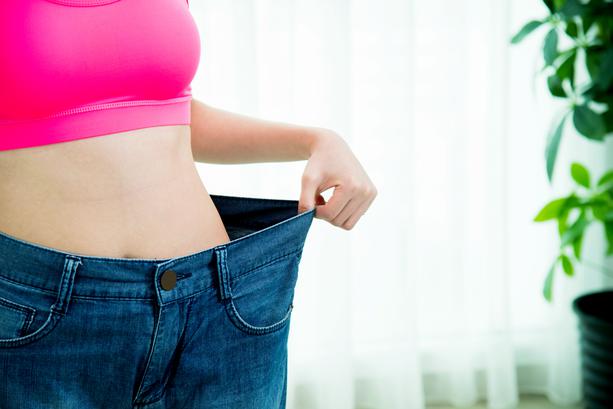Neither alcoholism nor anorexia. The 'drunkorexia' wants to describe a new pathology widespread among young people halfway between an eating disorder and alcoholism.
In the genetics of adolescents is the search for new experiences. A "good drunk", if the expression is allowed, is one of those experiences that few want to miss but that, taken to the extreme, can become a serious problem.
Although 'drunkorexia' is not used as a clinical term, several studies affirm that there is a pathology characterized by the restriction of food consumption to compensate for the excess calories provided by alcohol intake. This affects mainly young people between 18 and 26 years of age.
Alcohol, after fat, is the most fattening substance, about 700 calories per 100 grams compared to the 37 calories that carrots or strawberries with the same amount. Trying to compensate for this caloric intake by avoiding food is, from a medical point of view, outrageous. According to nutritionist Silvia Romero, "if we do not eat to compensate for the calories from alcohol, we are seriously endangering our health, since these are empty, that is, they do not contribute anything to us”. It is from food that we get the essential nutrients needed to live healthy.
Several studies show the harmful effect on health of this type of practice in which food is avoided to offset the calories of alcohol. But it is not the only malpractice that many young people carry out. As Montse Folch, a nutritionist at the Teknon Hospital in Barcelona, affirms, "many eat little dinner and then drink alcohol as long as the alcohol poisoning arrives sooner." When we skip a meal and consume alcohol, "this will reach the blood faster and the toxic effects on the brain and the rest of the body increase," explains Romero.
According to the General Health Psychologist and Director of Psicotools Marisa Parcerisa, young people are not aware of the serious consequences that consumption can cause. It is part of the normality of many of them to consume 4 or 5 drinks during the weekends and the reality is that this can lead to serious health problems.
If we do not eat to compensate for the alcohol calories, we seriously endanger our health, since these are empty calories
Silvia RomeroNutritionist
As Romero states, excessive alcohol consumption "can cause chronic diseases such as high blood pressure, liver disease, cardiovascular accidents, cancer, depression, anxiety, digestive problems, abortions..." And let's not forget that it can lead to a of the most difficult addictions to cure: alcoholism.
To appear to be adults or feel more likeable, some young people use alcohol as a release valve. A consumption that begins increasingly at younger ages and with greater intensity.
Both people who present problems with alcohol consumption and those who develop eating disorders, have associated, in many cases, some prior psychological symptom. In the case of alcohol, as Marisa Pacerisa recounts, "psychological disorders such as anxiety and depression usually occur simultaneously with its intake". Depression, anxiety, obsessive compulsive disorder, attention deficit disorder with hyperactivity, borderline personality disorder or addictive behaviors are, according to Pacerisa, "the most common disorders that we could associate with eating disorders".
Covid has reset the world as we understood it. The tests are given in all areas and both psychologically and nutritionally, they show the emotional pressure that the pandemic has placed on young people. Montse Folch, a nutritionist at the Teknon hospital, has realized that “the pandemic has increased alcohol consumption. Since we don't get so tired, we get more nervous and consume more, which acts as an anxiolytic." For his part, Parcerisa affirms that “many young people consume alcohol to escape and release all the anger, frustration or impotence accumulated over the last few months.”
A pathology that occurs more among the female gender
A study published by the National Library of Medicine concludes that body image exerts more pressure on women and therefore they are at greater risk of suffering from some type of eating disorder or 'drunkorexia'.
Beauty has always been closely linked to the female sex. Since Prehistory, the ideal of beauty was given by the need for reproduction. That is why women with bulky bodies were valued, in order to carry out effective reproduction and minimize the risks of death in childbirth.
Although 21st century society is changing its paradigms, "it is an undeniable fact that women continue to be associated with certain beauty canons that attach great importance to body image," says Parcerisa.
Internet and social networks are the new mirror for young women. The canons of beauty expand across the platforms and today, slim and exercised bodies are their mantra. Marisa Parcerisa affirms that these fall inadvertently in the comparison. “This comparison leads them to seek the perfection of their bodies, forcing themselves to submit to harsh diets that, added to difficult pasts (physical, power and/or sexual abuse, bullying, etc.) can be the triggers for developing an eating disorder. ", keep going.
The female image is the one that is most reproduced in our minds when we talk about eating disorders, given the large number of women who suffer from them compared to men. These "if they have experienced situations of a traumatic nature in their past, usually end up developing problems with other types of addictions such as alcohol, drugs or sex", concludes Parcerisa.
Read also








